Sir Winston Churchill Sir Winston Leonard Spencer-Churchill, KG,

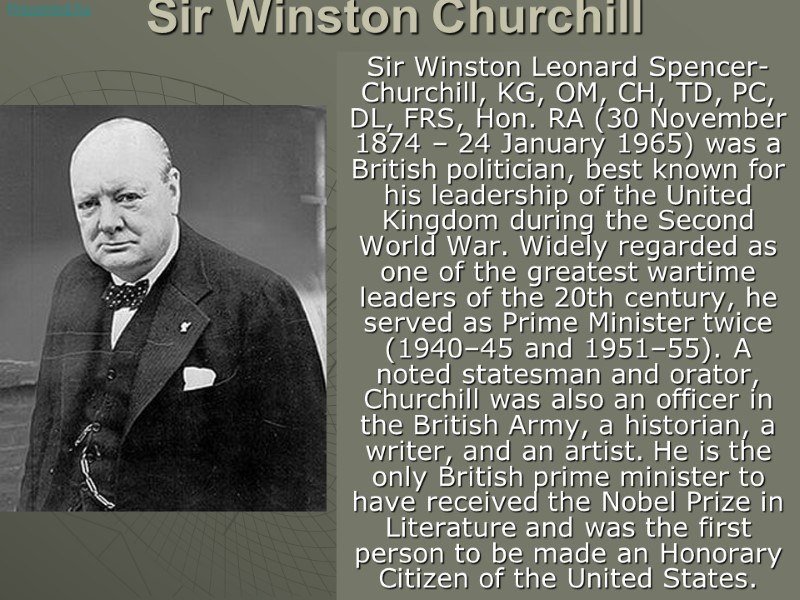
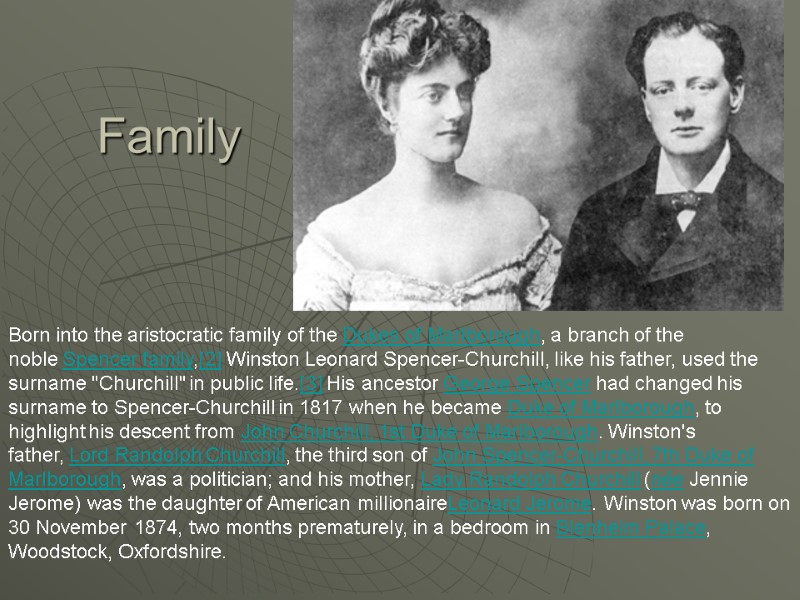
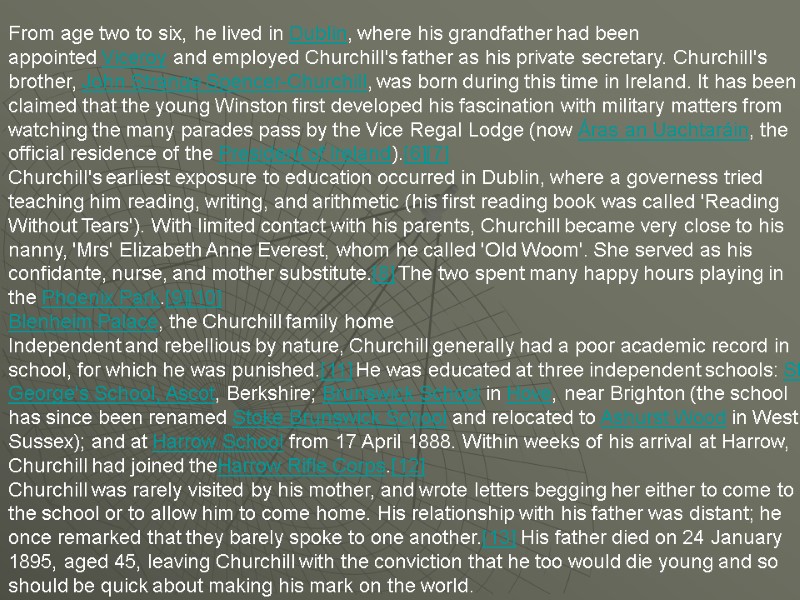
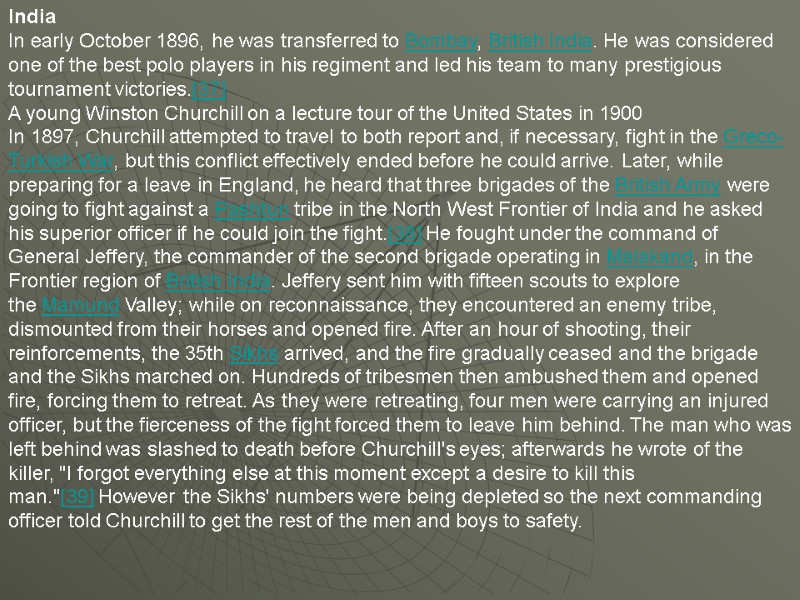
![Churchill stood again for the seat of Oldham at the 1900 general election.[62] After Churchill stood again for the seat of Oldham at the 1900 general election.[62] After](https://present5.com/presentacii-2/20171207\1890-[prezented.ru]_uinston-cherchill.ppt\1890-[prezentedru]_uinston-cherchill_5.jpg)
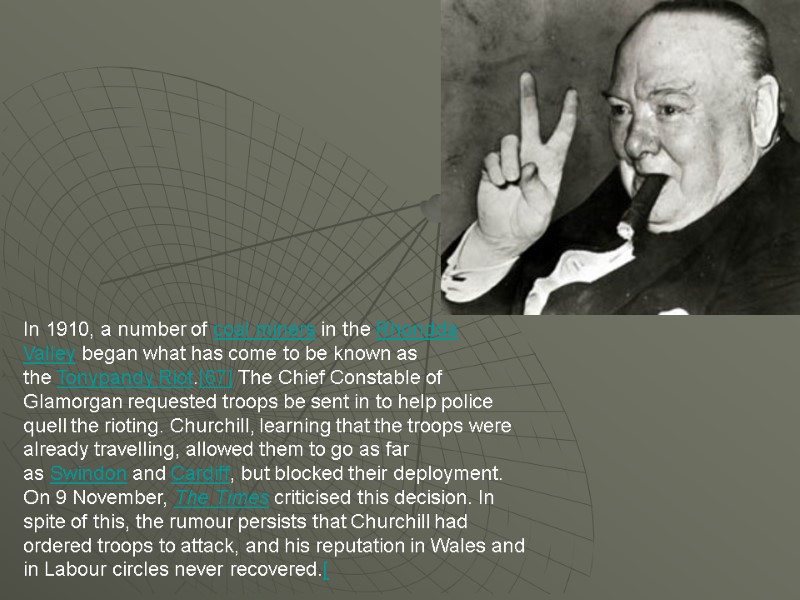
![Churchill sanctioned the use of tear gas on Kurdish tribesmen in Iraq.[95] Though the Churchill sanctioned the use of tear gas on Kurdish tribesmen in Iraq.[95] Though the](https://present5.com/presentacii-2/20171207\1890-[prezented.ru]_uinston-cherchill.ppt\1890-[prezentedru]_uinston-cherchill_7.jpg)
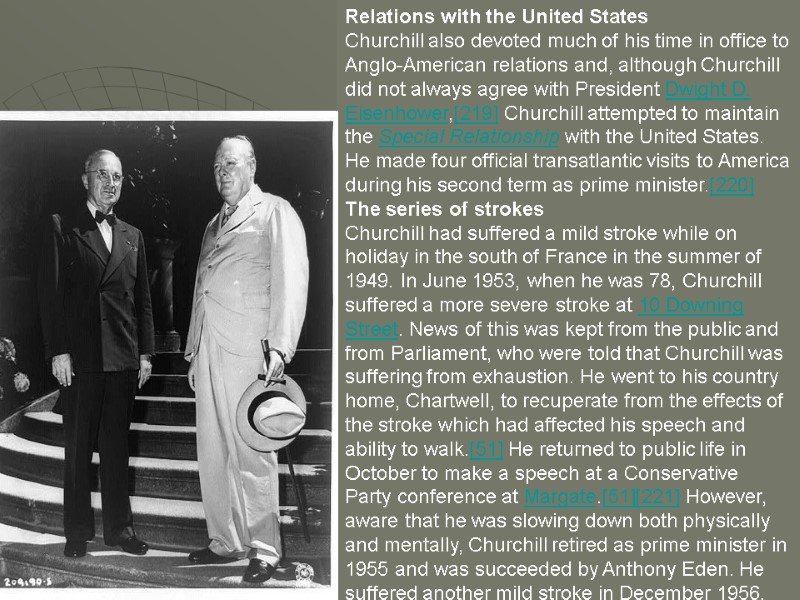
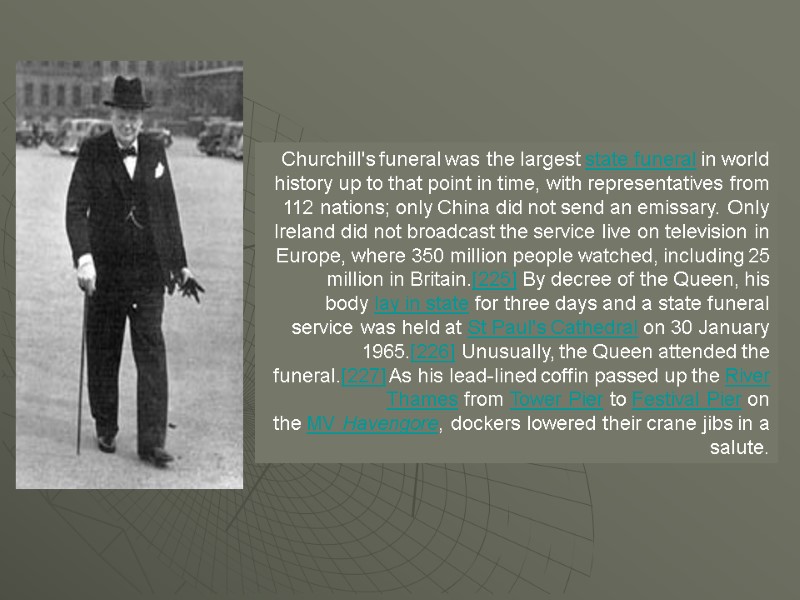
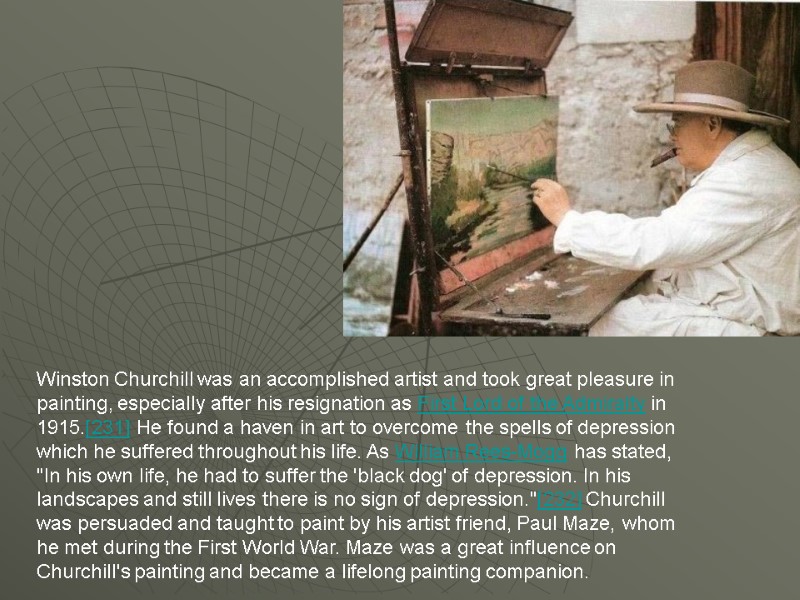
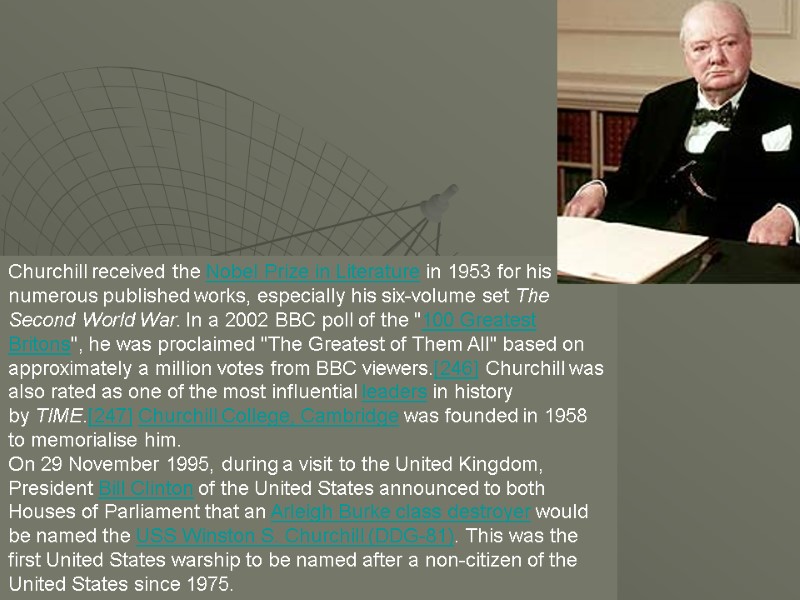
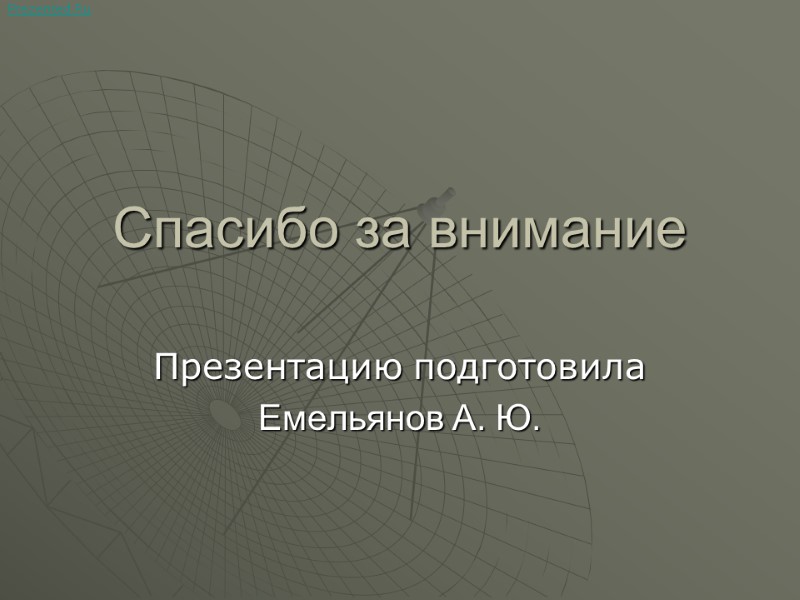
1890-[prezented.ru]_uinston-cherchill.ppt
- Количество слайдов: 12
 Sir Winston Churchill Sir Winston Leonard Spencer-Churchill, KG, OM, CH, TD, PC, DL, FRS, Hon. RA (30 November 1874 – 24 January 1965) was a British politician, best known for his leadership of the United Kingdom during the Second World War. Widely regarded as one of the greatest wartime leaders of the 20th century, he served as Prime Minister twice (1940–45 and 1951–55). A noted statesman and orator, Churchill was also an officer in the British Army, a historian, a writer, and an artist. He is the only British prime minister to have received the Nobel Prize in Literature and was the first person to be made an Honorary Citizen of the United States. Prezented.Ru
Sir Winston Churchill Sir Winston Leonard Spencer-Churchill, KG, OM, CH, TD, PC, DL, FRS, Hon. RA (30 November 1874 – 24 January 1965) was a British politician, best known for his leadership of the United Kingdom during the Second World War. Widely regarded as one of the greatest wartime leaders of the 20th century, he served as Prime Minister twice (1940–45 and 1951–55). A noted statesman and orator, Churchill was also an officer in the British Army, a historian, a writer, and an artist. He is the only British prime minister to have received the Nobel Prize in Literature and was the first person to be made an Honorary Citizen of the United States. Prezented.Ru
 Family Born into the aristocratic family of the Dukes of Marlborough, a branch of the noble Spencer family,[2] Winston Leonard Spencer-Churchill, like his father, used the surname "Churchill" in public life.[3] His ancestor George Spencer had changed his surname to Spencer-Churchill in 1817 when he became Duke of Marlborough, to highlight his descent from John Churchill, 1st Duke of Marlborough. Winston's father, Lord Randolph Churchill, the third son of John Spencer-Churchill, 7th Duke of Marlborough, was a politician; and his mother, Lady Randolph Churchill (née Jennie Jerome) was the daughter of American millionaireLeonard Jerome. Winston was born on 30 November 1874, two months prematurely, in a bedroom in Blenheim Palace, Woodstock, Oxfordshire.
Family Born into the aristocratic family of the Dukes of Marlborough, a branch of the noble Spencer family,[2] Winston Leonard Spencer-Churchill, like his father, used the surname "Churchill" in public life.[3] His ancestor George Spencer had changed his surname to Spencer-Churchill in 1817 when he became Duke of Marlborough, to highlight his descent from John Churchill, 1st Duke of Marlborough. Winston's father, Lord Randolph Churchill, the third son of John Spencer-Churchill, 7th Duke of Marlborough, was a politician; and his mother, Lady Randolph Churchill (née Jennie Jerome) was the daughter of American millionaireLeonard Jerome. Winston was born on 30 November 1874, two months prematurely, in a bedroom in Blenheim Palace, Woodstock, Oxfordshire.
 From age two to six, he lived in Dublin, where his grandfather had been appointed Viceroy and employed Churchill's father as his private secretary. Churchill's brother, John Strange Spencer-Churchill, was born during this time in Ireland. It has been claimed that the young Winston first developed his fascination with military matters from watching the many parades pass by the Vice Regal Lodge (now Áras an Uachtaráin, the official residence of the President of Ireland).[6][7] Churchill's earliest exposure to education occurred in Dublin, where a governess tried teaching him reading, writing, and arithmetic (his first reading book was called 'Reading Without Tears'). With limited contact with his parents, Churchill became very close to his nanny, 'Mrs' Elizabeth Anne Everest, whom he called 'Old Woom'. She served as his confidante, nurse, and mother substitute.[8] The two spent many happy hours playing in the Phoenix Park.[9][10] Blenheim Palace, the Churchill family home Independent and rebellious by nature, Churchill generally had a poor academic record in school, for which he was punished.[11] He was educated at three independent schools: St. George's School, Ascot, Berkshire; Brunswick School in Hove, near Brighton (the school has since been renamed Stoke Brunswick School and relocated to Ashurst Wood in West Sussex); and at Harrow School from 17 April 1888. Within weeks of his arrival at Harrow, Churchill had joined theHarrow Rifle Corps.[12] Churchill was rarely visited by his mother, and wrote letters begging her either to come to the school or to allow him to come home. His relationship with his father was distant; he once remarked that they barely spoke to one another.[13] His father died on 24 January 1895, aged 45, leaving Churchill with the conviction that he too would die young and so should be quick about making his mark on the world.
From age two to six, he lived in Dublin, where his grandfather had been appointed Viceroy and employed Churchill's father as his private secretary. Churchill's brother, John Strange Spencer-Churchill, was born during this time in Ireland. It has been claimed that the young Winston first developed his fascination with military matters from watching the many parades pass by the Vice Regal Lodge (now Áras an Uachtaráin, the official residence of the President of Ireland).[6][7] Churchill's earliest exposure to education occurred in Dublin, where a governess tried teaching him reading, writing, and arithmetic (his first reading book was called 'Reading Without Tears'). With limited contact with his parents, Churchill became very close to his nanny, 'Mrs' Elizabeth Anne Everest, whom he called 'Old Woom'. She served as his confidante, nurse, and mother substitute.[8] The two spent many happy hours playing in the Phoenix Park.[9][10] Blenheim Palace, the Churchill family home Independent and rebellious by nature, Churchill generally had a poor academic record in school, for which he was punished.[11] He was educated at three independent schools: St. George's School, Ascot, Berkshire; Brunswick School in Hove, near Brighton (the school has since been renamed Stoke Brunswick School and relocated to Ashurst Wood in West Sussex); and at Harrow School from 17 April 1888. Within weeks of his arrival at Harrow, Churchill had joined theHarrow Rifle Corps.[12] Churchill was rarely visited by his mother, and wrote letters begging her either to come to the school or to allow him to come home. His relationship with his father was distant; he once remarked that they barely spoke to one another.[13] His father died on 24 January 1895, aged 45, leaving Churchill with the conviction that he too would die young and so should be quick about making his mark on the world.
 India In early October 1896, he was transferred to Bombay, British India. He was considered one of the best polo players in his regiment and led his team to many prestigious tournament victories.[37] A young Winston Churchill on a lecture tour of the United States in 1900 In 1897, Churchill attempted to travel to both report and, if necessary, fight in the Greco-Turkish War, but this conflict effectively ended before he could arrive. Later, while preparing for a leave in England, he heard that three brigades of the British Army were going to fight against a Pashtun tribe in the North West Frontier of India and he asked his superior officer if he could join the fight.[38] He fought under the command of General Jeffery, the commander of the second brigade operating in Malakand, in the Frontier region of British India. Jeffery sent him with fifteen scouts to explore the Mamund Valley; while on reconnaissance, they encountered an enemy tribe, dismounted from their horses and opened fire. After an hour of shooting, their reinforcements, the 35th Sikhs arrived, and the fire gradually ceased and the brigade and the Sikhs marched on. Hundreds of tribesmen then ambushed them and opened fire, forcing them to retreat. As they were retreating, four men were carrying an injured officer, but the fierceness of the fight forced them to leave him behind. The man who was left behind was slashed to death before Churchill's eyes; afterwards he wrote of the killer, "I forgot everything else at this moment except a desire to kill this man."[39] However the Sikhs' numbers were being depleted so the next commanding officer told Churchill to get the rest of the men and boys to safety.
India In early October 1896, he was transferred to Bombay, British India. He was considered one of the best polo players in his regiment and led his team to many prestigious tournament victories.[37] A young Winston Churchill on a lecture tour of the United States in 1900 In 1897, Churchill attempted to travel to both report and, if necessary, fight in the Greco-Turkish War, but this conflict effectively ended before he could arrive. Later, while preparing for a leave in England, he heard that three brigades of the British Army were going to fight against a Pashtun tribe in the North West Frontier of India and he asked his superior officer if he could join the fight.[38] He fought under the command of General Jeffery, the commander of the second brigade operating in Malakand, in the Frontier region of British India. Jeffery sent him with fifteen scouts to explore the Mamund Valley; while on reconnaissance, they encountered an enemy tribe, dismounted from their horses and opened fire. After an hour of shooting, their reinforcements, the 35th Sikhs arrived, and the fire gradually ceased and the brigade and the Sikhs marched on. Hundreds of tribesmen then ambushed them and opened fire, forcing them to retreat. As they were retreating, four men were carrying an injured officer, but the fierceness of the fight forced them to leave him behind. The man who was left behind was slashed to death before Churchill's eyes; afterwards he wrote of the killer, "I forgot everything else at this moment except a desire to kill this man."[39] However the Sikhs' numbers were being depleted so the next commanding officer told Churchill to get the rest of the men and boys to safety.
![>Churchill stood again for the seat of Oldham at the 1900 general election.[62] After >Churchill stood again for the seat of Oldham at the 1900 general election.[62] After](https://present5.com/presentacii-2/20171207\1890-[prezented.ru]_uinston-cherchill.ppt\1890-[prezentedru]_uinston-cherchill_5.jpg) Churchill stood again for the seat of Oldham at the 1900 general election.[62] After winning the seat, he went on a speaking tour throughout Britain and the United States, raising £10,000 for himself (about £800,000 today).[63] In Parliament, he became associated with a faction of the Conservative Party led by Lord Hugh Cecil; the Hughligans. During his first parliamentary session, he opposed the government's military expenditure[64] and Joseph Chamberlain's proposal of extensive tariffs, which were intended to protect Britain's economic dominance. His own constituency effectively deselected him, although he continued to sit for Oldham until the next general election. After the Whitsun recess in 1904, he crossed the floor to sit as a member of the Liberal Party. As a Liberal, he continued to campaign for free trade. When the Liberals took office with Henry Campbell-Bannerman as prime minister, in December 1905, Churchill became Under-Secretary of State for the Colonies, dealing mainly with South Africa after the Boer War. From 1903 until 1905, Churchill was also engaged in writing Lord Randolph Churchill, a two-volume biography of his father which was published in 1906 and received much critical acclaim
Churchill stood again for the seat of Oldham at the 1900 general election.[62] After winning the seat, he went on a speaking tour throughout Britain and the United States, raising £10,000 for himself (about £800,000 today).[63] In Parliament, he became associated with a faction of the Conservative Party led by Lord Hugh Cecil; the Hughligans. During his first parliamentary session, he opposed the government's military expenditure[64] and Joseph Chamberlain's proposal of extensive tariffs, which were intended to protect Britain's economic dominance. His own constituency effectively deselected him, although he continued to sit for Oldham until the next general election. After the Whitsun recess in 1904, he crossed the floor to sit as a member of the Liberal Party. As a Liberal, he continued to campaign for free trade. When the Liberals took office with Henry Campbell-Bannerman as prime minister, in December 1905, Churchill became Under-Secretary of State for the Colonies, dealing mainly with South Africa after the Boer War. From 1903 until 1905, Churchill was also engaged in writing Lord Randolph Churchill, a two-volume biography of his father which was published in 1906 and received much critical acclaim
 In 1910, a number of coal miners in the Rhondda Valley began what has come to be known as the Tonypandy Riot.[67] The Chief Constable of Glamorgan requested troops be sent in to help police quell the rioting. Churchill, learning that the troops were already travelling, allowed them to go as far as Swindon and Cardiff, but blocked their deployment. On 9 November, The Times criticised this decision. In spite of this, the rumour persists that Churchill had ordered troops to attack, and his reputation in Wales and in Labour circles never recovered.[
In 1910, a number of coal miners in the Rhondda Valley began what has come to be known as the Tonypandy Riot.[67] The Chief Constable of Glamorgan requested troops be sent in to help police quell the rioting. Churchill, learning that the troops were already travelling, allowed them to go as far as Swindon and Cardiff, but blocked their deployment. On 9 November, The Times criticised this decision. In spite of this, the rumour persists that Churchill had ordered troops to attack, and his reputation in Wales and in Labour circles never recovered.[
![>Churchill sanctioned the use of tear gas on Kurdish tribesmen in Iraq.[95] Though the >Churchill sanctioned the use of tear gas on Kurdish tribesmen in Iraq.[95] Though the](https://present5.com/presentacii-2/20171207\1890-[prezented.ru]_uinston-cherchill.ppt\1890-[prezentedru]_uinston-cherchill_7.jpg) Churchill sanctioned the use of tear gas on Kurdish tribesmen in Iraq.[95] Though the British did consider the use of non-lethal poison gas in putting down Kurdish rebellions, it was not used, as conventional bombing was considered effective.[95] In 1923, Churchill acted as a paid consultant for Burmah Oil (now BP plc) to lobby the British government to allow Burmah to have exclusive rights to Persian (Iranian) oil resources, which were successfully granted.
Churchill sanctioned the use of tear gas on Kurdish tribesmen in Iraq.[95] Though the British did consider the use of non-lethal poison gas in putting down Kurdish rebellions, it was not used, as conventional bombing was considered effective.[95] In 1923, Churchill acted as a paid consultant for Burmah Oil (now BP plc) to lobby the British government to allow Burmah to have exclusive rights to Persian (Iranian) oil resources, which were successfully granted.
 Relations with the United States Churchill also devoted much of his time in office to Anglo-American relations and, although Churchill did not always agree with President Dwight D. Eisenhower,[219] Churchill attempted to maintain the Special Relationship with the United States. He made four official transatlantic visits to America during his second term as prime minister.[220] The series of strokes Churchill had suffered a mild stroke while on holiday in the south of France in the summer of 1949. In June 1953, when he was 78, Churchill suffered a more severe stroke at 10 Downing Street. News of this was kept from the public and from Parliament, who were told that Churchill was suffering from exhaustion. He went to his country home, Chartwell, to recuperate from the effects of the stroke which had affected his speech and ability to walk.[51] He returned to public life in October to make a speech at a Conservative Party conference at Margate.[51][221] However, aware that he was slowing down both physically and mentally, Churchill retired as prime minister in 1955 and was succeeded by Anthony Eden. He suffered another mild stroke in December 1956.
Relations with the United States Churchill also devoted much of his time in office to Anglo-American relations and, although Churchill did not always agree with President Dwight D. Eisenhower,[219] Churchill attempted to maintain the Special Relationship with the United States. He made four official transatlantic visits to America during his second term as prime minister.[220] The series of strokes Churchill had suffered a mild stroke while on holiday in the south of France in the summer of 1949. In June 1953, when he was 78, Churchill suffered a more severe stroke at 10 Downing Street. News of this was kept from the public and from Parliament, who were told that Churchill was suffering from exhaustion. He went to his country home, Chartwell, to recuperate from the effects of the stroke which had affected his speech and ability to walk.[51] He returned to public life in October to make a speech at a Conservative Party conference at Margate.[51][221] However, aware that he was slowing down both physically and mentally, Churchill retired as prime minister in 1955 and was succeeded by Anthony Eden. He suffered another mild stroke in December 1956.
 Churchill's funeral was the largest state funeral in world history up to that point in time, with representatives from 112 nations; only China did not send an emissary. Only Ireland did not broadcast the service live on television in Europe, where 350 million people watched, including 25 million in Britain.[225] By decree of the Queen, his body lay in state for three days and a state funeral service was held at St Paul's Cathedral on 30 January 1965.[226] Unusually, the Queen attended the funeral.[227] As his lead-lined coffin passed up the River Thames from Tower Pier to Festival Pier on the MV Havengore, dockers lowered their crane jibs in a salute.
Churchill's funeral was the largest state funeral in world history up to that point in time, with representatives from 112 nations; only China did not send an emissary. Only Ireland did not broadcast the service live on television in Europe, where 350 million people watched, including 25 million in Britain.[225] By decree of the Queen, his body lay in state for three days and a state funeral service was held at St Paul's Cathedral on 30 January 1965.[226] Unusually, the Queen attended the funeral.[227] As his lead-lined coffin passed up the River Thames from Tower Pier to Festival Pier on the MV Havengore, dockers lowered their crane jibs in a salute.
 Winston Churchill was an accomplished artist and took great pleasure in painting, especially after his resignation as First Lord of the Admiralty in 1915.[231] He found a haven in art to overcome the spells of depression which he suffered throughout his life. As William Rees-Mogg has stated, "In his own life, he had to suffer the 'black dog' of depression. In his landscapes and still lives there is no sign of depression."[232] Churchill was persuaded and taught to paint by his artist friend, Paul Maze, whom he met during the First World War. Maze was a great influence on Churchill's painting and became a lifelong painting companion.
Winston Churchill was an accomplished artist and took great pleasure in painting, especially after his resignation as First Lord of the Admiralty in 1915.[231] He found a haven in art to overcome the spells of depression which he suffered throughout his life. As William Rees-Mogg has stated, "In his own life, he had to suffer the 'black dog' of depression. In his landscapes and still lives there is no sign of depression."[232] Churchill was persuaded and taught to paint by his artist friend, Paul Maze, whom he met during the First World War. Maze was a great influence on Churchill's painting and became a lifelong painting companion.
 Churchill received the Nobel Prize in Literature in 1953 for his numerous published works, especially his six-volume set The Second World War. In a 2002 BBC poll of the "100 Greatest Britons", he was proclaimed "The Greatest of Them All" based on approximately a million votes from BBC viewers.[246] Churchill was also rated as one of the most influential leaders in history by TIME.[247] Churchill College, Cambridge was founded in 1958 to memorialise him. On 29 November 1995, during a visit to the United Kingdom, President Bill Clinton of the United States announced to both Houses of Parliament that an Arleigh Burke class destroyer would be named the USS Winston S. Churchill (DDG-81). This was the first United States warship to be named after a non-citizen of the United States since 1975.
Churchill received the Nobel Prize in Literature in 1953 for his numerous published works, especially his six-volume set The Second World War. In a 2002 BBC poll of the "100 Greatest Britons", he was proclaimed "The Greatest of Them All" based on approximately a million votes from BBC viewers.[246] Churchill was also rated as one of the most influential leaders in history by TIME.[247] Churchill College, Cambridge was founded in 1958 to memorialise him. On 29 November 1995, during a visit to the United Kingdom, President Bill Clinton of the United States announced to both Houses of Parliament that an Arleigh Burke class destroyer would be named the USS Winston S. Churchill (DDG-81). This was the first United States warship to be named after a non-citizen of the United States since 1975.
 Спасибо за внимание Презентацию подготовила Емельянов А. Ю. Prezented.Ru
Спасибо за внимание Презентацию подготовила Емельянов А. Ю. Prezented.Ru

